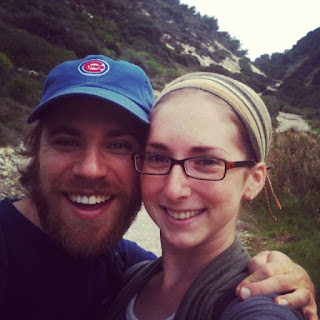The mayor of Haifa, Yona Yahav, recently launched his war on English. Increased use of English, in advertisements, slang and even everyday language is the trend here in Israel. However, I think it's important to break these categories down and try to understand why this is happening.
1. Technology. As technology develops at a rapid pace, Hebrew words are not keeping up. An iPhone is called an iPhone whether you live in NYC or Tel Aviv. I mean, let's be honest, the Hebrew word for telephone is general, is טלפון, telephone, and the verb to call someone on the telephone is לטלפן, l'talphen, (to telephone). There are a lot of Hebrew words, liketelephone, derived from English, but there are also many words that have a legitimate Hebrew version, yet the English is equally (or more so) heard. You can walk into a cafe with your computer and ask if they have מרשתת אלחוטית, mirshetet alhuti, but the barista (in Hebrew: בריסטה, barista) will look at you either like you fell off the moon or like you're trying to be snooty. You're better off asking if they have ואי פי or Wi-Fi.
2. English is cool. Why use a Hebrew word when you can use an English word and seem infinitely cooler. In fact, the popular word used to describe someone as cool in Hebrew is cooli (coolit for a girl, coolim for multiple cool people). When my mom was visiting a friend of hers this past week, her friend's grandson repeatedly called my mom acoolit for being able to "find Waldo" and keep up with Dance Dance Revolution. Newspapers also think English is cool. Headlines will often choose a transliterated "exotic" English word over the, oh so common, Hebrew option. Way to pack a punch, Hebrew newspapers. Lastly, English is cool on your clothing. I'm pretty sure this phenomenon exists in all countries that don't speak English, not just Israel, but it can be found here too. The problem with English on your clothing is when the words don't actually make sense. It's like when Americans get Chinese character tattoos and *think* they know what it says ("my tatoo means 'peace and tranquility'." "Umm... I'm pretty sure it says 'wanton soup'..."). Here's this guy's cool jacket I saw on the bus:
(It reads: "M.S.T.R. original. The best fashion sports wear best this into store to carve best classic")
3. English makes you seem International. From clothing stores (GOLF, FOX) to tv cable companies (HOT, YES) you're just as likely to see storefront signs or company letterhead with English letters as Hebrew. The trend now is to even write Hebrew words in English characters, très internationale. Take the Haifa hairdresser Oudi BenHarush for example, whose very Hebrew name, is written is very English letters...

The big mall in our area, the Grand Canyon, has succumbed to the lure of English as well. While the name is particularly witty (canyon means mall in Hebrew and the mall happens to be built into an actual canyon), which I very much appreciate, that doesn't negate the clear English influence. Someone once even felt the need to translate the mall's name for me: "you know the Grand Canyon, the Great Mall." (I didn't tell her that "grand" is already an English word...)

4. Sometimes English is a necessity. Tourism is one of Israel's biggest industries. Part of welcoming tourists to your country is making sure that said tourists can successfully travel around the country. This is one of the reasons why most street signs in Israel are tri-lingual. Hebrew and Arabic, because they are the two official languages of Israel, and English, because it is the international language. Sometimes, however, the city fails to hire an English editor and then you end up with signs like this in your neighborhood: ![]()
![]()
These, among others, are the reasons English is and is becoming more prevalent around these parts and Haifa Mayor Yona Yahav doesn't want any of it. The free daily newspaper that we read everyday in my Ulpan class, reported that the mayor has already succeeded in eliminating English from municipal documents and is now trying to figure out if it is legal to require businesses to include Hebrew lettering on shop signs. Nothing in the article was said, however, about the prevalence of Russian in Haifa, which I hear and see used much much more than English. At least once a week an old man approaches me and says something in Russian and I have to sadly gesture that I have no idea what he is saying...
You can find the full (poorly translated) article here: http://www.israelhayom.
While my Zionistic leanings make me want to agree that Hebrew should ultimately be the dominant language in all of Israel... stop hating on my native English, Yona Yahav!
We hope you all had a Shabbat of Peace and a great weekend,
Stef and Matt













.JPG)



